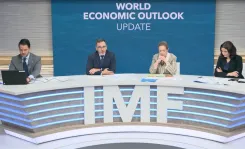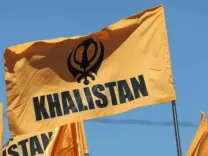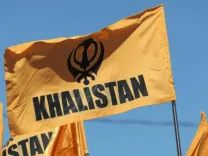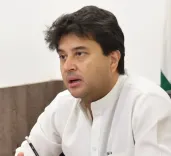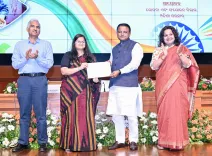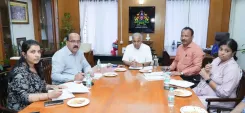Have India’s Cooperatives Transcended Traditional Boundaries to Become Innovators?
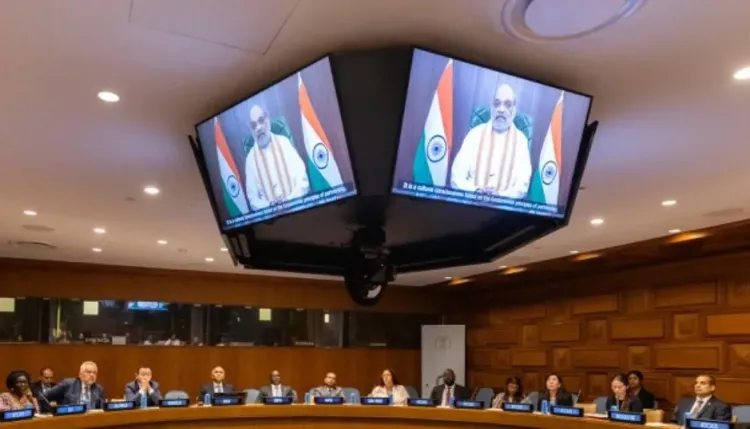
Synopsis
Key Takeaways
- Cooperatives in India are innovating across multiple sectors.
- The UN has designated 2025 as the International Year of Cooperatives.
- Cooperatives are key to achieving sustainable development goals.
- India is launching the largest grain storage program through cooperatives.
- The mantra 'Sahkar Se Samriddhi' emphasizes prosperity through cooperation.
United Nations, July 28 (NationPress) - According to Union Home Minister Amit Shah, cooperatives in India have transcended traditional boundaries, evolving into pioneers within advanced sectors like digital services and finance.
“Technological advancements are fostering greater inclusivity within cooperatives today. In discussions surrounding sustainable development, cooperatives are emerging as a potent vehicle for embodying the core tenets of the circular economy,” he stated in a message at an event on Monday, commemorating the International Year of Cooperatives.
Shah, who oversees the Cooperatives portfolio, remarked, “In India, cooperatives have expanded beyond their traditional roles, becoming instruments of innovation and self-reliance in various fields such as digital services, healthcare, education, energy, organic farming, and financial inclusion.”
The event was co-hosted by the permanent missions of India, Mongolia, and Kenya, themed “Cooperatives and Sustainable Development: Maintaining Momentum and Exploring New Pathways.”
Last year, the UN General Assembly designated 2025 as the International Year of Cooperatives to highlight the role cooperatives play in achieving sustainable development goals.
Kenya’s Permanent Representative Ekitela Lokaale noted that cooperatives have enhanced financial access for citizens via the Savings and Credit Cooperative Organisation (SACCO).
He added that cooperatives also opened pathways for sustainable, profitable agriculture through improved market access and are currently exploring new avenues for sustainable development.
Mongolia’s Permanent Representative N Ankhbayar shared insights from his country, emphasizing the need to bolster global cooperation in promoting cooperatives.
India’s Permanent Representative, P. Harish, stated that rooted in ancient Sanskrit traditions, the cooperative sector has been crucial to India’s development for over a century.
Shah emphasized that “for millennia, cooperation has been integral to Indian values,” and noted that Prime Minister Narendra Modi has transformed cooperation into a grassroots movement encapsulated in the mantra “Sahkar Se Samriddhi” (Prosperity through Cooperation).
Cooperatives in India reflect “a cultural consciousness founded on the core principles of partnership, transparency, and social justice, guiding us from an ‘I’ mindset to a ‘we’ approach, and serve as a testament to the strength of collective effort.”
India is initiating the largest grain storage program globally, implemented through cooperatives to enhance food security, ensure organized markets, and provide better pricing for farmers, he noted.
To link farmers directly with international markets and ensure they receive a fair share of export profits, Shah announced the establishment of three multi-state cooperative societies: Bharatiya Beej Sahkari Samiti Limited (BBSSL), National Cooperative Organics Limited (NCOL), and National Cooperative Exports Limited (NCEL).


